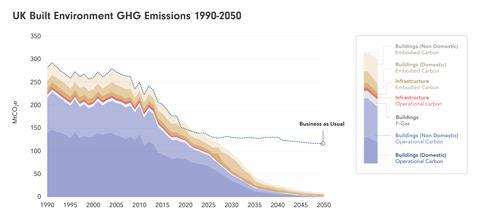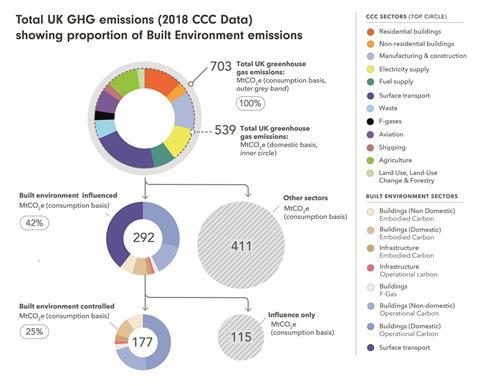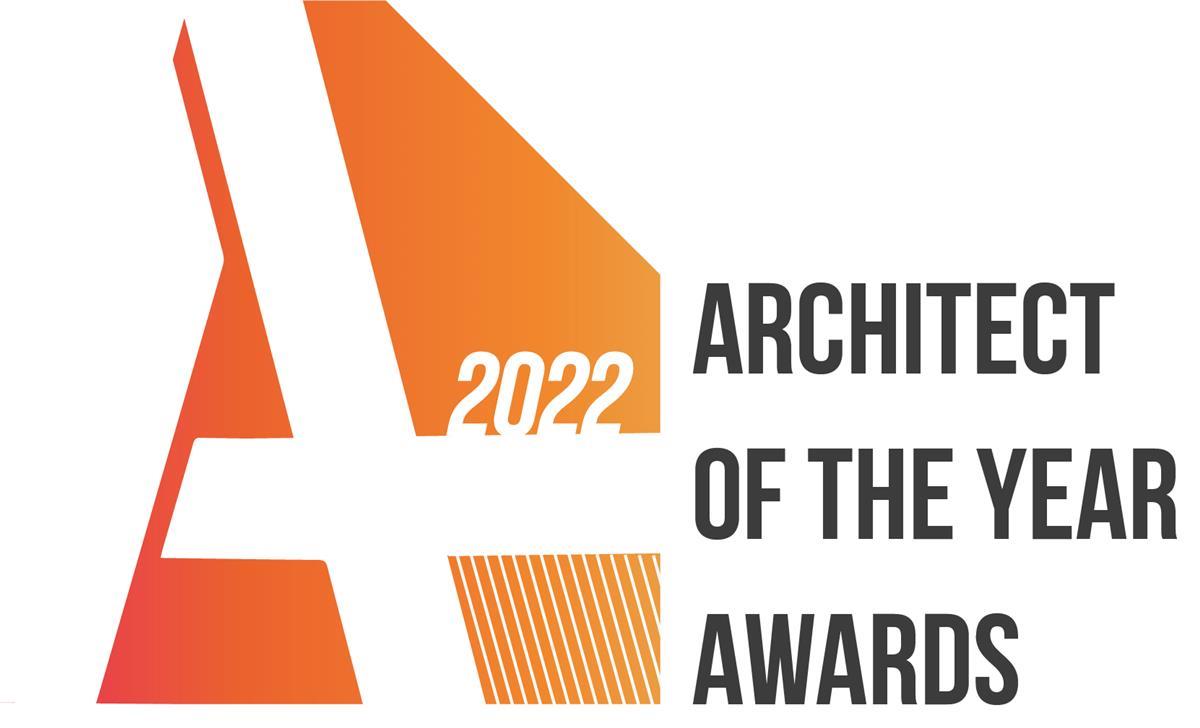Detailed roadmap launched at COP26 by coalition of architects and other construction professionals
A net zero built environment sector by 2050 is achievable – but only with urgent government action, the UKGBC will tell world leaders at COP26 today.
More than 100 organisations led by the UK Green Building Council were today due to publish a Net Zero Whole Life Carbon Roadmap for the nation’s built environment detailing the necessary actions they say government and industry must take to achieve net zero across the sector.
Former RIBA president and UKGBC chair Sunand Prasad will be on a panel with Lord Callanan, the minister for business, energy and corporate responsibility, at an event in the main COP26 venue to launch the report on COP’s dedicated day for cities and the built environment.

路线图列出了到2050年实现英国建筑环境净零的共同愿景和一系列行动,涉及建筑和基础设施的建设、运营和拆除。这将使英国在未来几年取得的进展成为基准。
It quantifies, for the first time, the specific emission reductions across sub-sectors of the built environment that will need to take place year-on-year to meet the 2050 deadline set by the UK government.
报告认为,只有采取紧急措施和干预措施,英国才能实现到2035年减排78%的中期目标。
The analysis includes not only domestic emissions but emissions related to the consumption of imported construction products and materials.
Julie Hirigoyen, chief executive of the UKGBC, said the roadmap went beyond the government’s recent Heat and Buildings Strategy which disappointed many.
“After all the talk, it’s time for action,” she said. “The UK government’s Heat and Buildings Strategy is a step in the right direction but fails to address several key priorities that this analysis clearly demonstrates are non-negotiable to achieving a net-zero carbon built environment by 2050.”
The report pulled together disparate strands of recent policy and action into one coherent pathway, she said, with clear recommendations for national and local government, as well as the private sector and the wider industry.
“We urge policy-makers and industry to embed these recommendations into policies and strategies to make good on the promises and commitments of COP26,” she said.
Many of the recommendations align with existing industry initiatives such as Construct Zero from the Construction Leadership Council, and the Construction Industry Council’s Climate Action Plan, she said.

The recommendations include
1) Nationwide retrofitting of existing homes.
• Establish an immediate national programme of “fabric first” home retrofit to make homes efficient, warm, and transition away from fossil fuel heating.
•燃气、燃油锅炉销售截止日期提前至2030年。
• Reform EPCs and introduce minimum EPC ratings for homes at point of sale by 2028.
• Remove VAT on energy efficient retrofit building works and introduce variable stamp duty linked to energy performance.
• Introduce direct government retrofit grants for low-income households.
2) Energy performance disclosure for non-domestic buildings.
• Introduce mandatory in-use energy disclosure for non-domestic buildings.
• Accelerate the roll-out of energy performance rating schemes across non-domestic sectors, followed by minimum standards and fiscal incentives.
3) Adoption of a design for performance approach to new buildings.
• Reform building regulations to introduce Energy Usage Intensity (kWh/m2/yr) targets for new buildings from 2025.Alongside low carbon heating for all new buildings from 2025, introduce space heating demand limits (kWh/m2/yr), measures to limit peak demand, and minimum standards for currently unregulated key appliances.
4) Whole life carbon measurements and agreed limits.
• Introduce the regulation of embodied carbon for new buildings and major refurbishments
• Support and invest in industrial decarbonisation of key construction material supply chains
• Use planning reforms to prioritise reuse of existing buildings and assets
5) National infrastructure investment based on the net emissions impact.
• Establish a National Infrastructure Integrator with full oversight of carbon impacts

















1Readers' comment